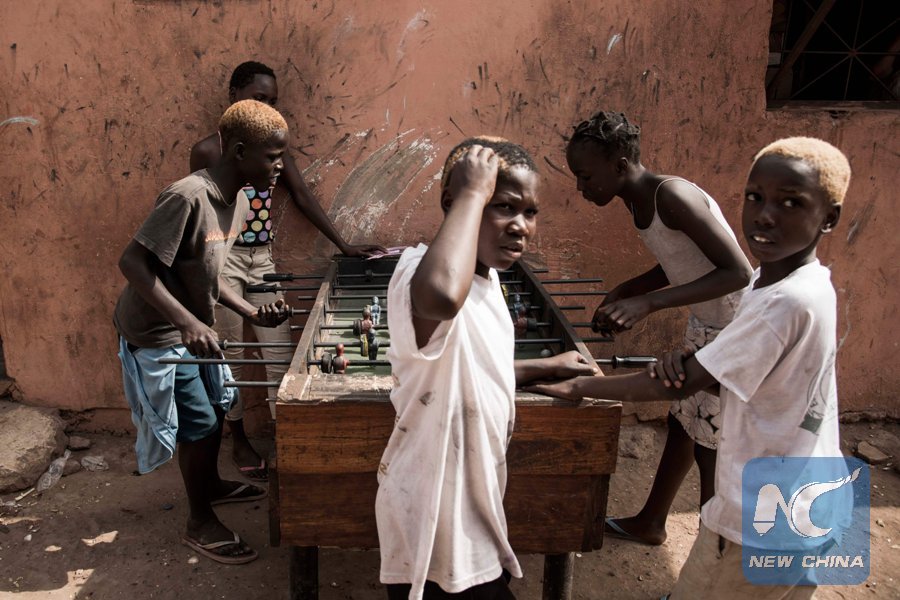
File Photo: Children play table football in the Mindara neighbourhood in Bissau on Mardi Gras on Feb. 13, 2018. (Xinhua/AFP)
UNITED NATIONS, Dec. 21 (Xinhua) -- An advisor on Friday asked the international community to consider emergency financial support for Guinea-Bissau, whose economic and fiscal situations remain severely strained.
"I would like to call the international community to consider the possibility of providing emergency and targeted budget support to stabilize the public sector," Mauro Vieira, chair of the Guinea-Bissau configuration of the UN Peacebuilding Commission (PBC), told the Security Council.
"At the same time, I encourage the government of Guinea-Bissau, on its part, to do more to demonstrate its full commitment to holding elections, and to put in place credible mechanisms to guarantee proper and transparent use of assistance that may be availed."
Economic growth in the West African country is projected to decline to 3.8 percent this year from 5.9 percent in 2017, World Bank officials told a PBC meeting in August, according to Vieira.
Tax revenues are also expected to decline from 10.3 percent of the GDP to 8.5 percent during the same period, mainly due to a lower income from cashew exports. A decline in economic activity and a consequent drop in imports also contributed to this scenario by lowering tax revenue.
In connection with the socio-economic and political environment, Guinea-Bissau has seen a series of strikes which affect the activities of the public sector, said Vieira, who is Brazilian ambassador to the United Nations.
State-owned schools in Guinea-Bissau have been closed for months and teachers organized demonstrations requesting unpaid salaries. Guinea-Bissau needs an estimated amount of 7.8 million U.S. dollars to pay 18 months of accumulated salary arrears for teachers, he said.
There have been a series of strikes and demonstrations of civil servants and of ex-combatants in the past months. A students' demonstration organized on Nov. 9 was suppressed with force and resulted in the dismissal of the interior minister, he said.
The PBC is a UN Intergovernmental advisory body of both the General Assembly and the Security Council that supports peace efforts in conflict-affected countries.
In his briefing to the Security Council before Vieira, UN Assistant Secretary-General for Political Affairs Taye-Brook Zerihoun warned of the danger of a new political crisis in Guinea-Bissau over delayed legislative elections.
"Guinea-Bissau risks lurching from one political crisis to another, unless decisive steps are taken by the government to meet the new election date decreed by the president," he said.
Legislative elections were scheduled for Nov. 18, but have been postponed by technical challenges. President Jose Mario Vaz on Thursday issued a decree, setting March 10, 2019, as the new election date.
"At this juncture, the international community should consider sending a strong message to the Bissau-Guinean authorities and political actors to demonstrate the requisite political will for the organization of credible legislative elections and refrain from further delaying the process," Zerihoun said.
The tiny West African country has been in a political crisis since August 2015, when President Mario Vaz deposed Prime Minister Domingos Simoes Pereira, his main political rival.

